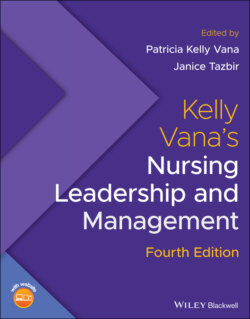Читать книгу Kelly Vana's Nursing Leadership and Management - Группа авторов - Страница 218
Deference to Expertise
ОглавлениеDeference to expertise acknowledges that collective knowledge is better than the proficiency of one individual. This allows a team to recognize and use the unique skills of everyone involved. HROs minimize the authority gradient and hierarchy so that everyone feels comfortable about speaking up. Authority gradients exist in nursing and in other health care professions. Consider the difference in perceived authority between direct care nurses, nurse managers, nurse directors, and the Chief Nursing Officer (CNO). Hierarchy also exists in health care settings and refers to the perceived level of power across groups. Consider, for example, the perceived power for a housekeeper compared to a direct care nurse, or a direct care nurse and a physician. Health care has been and remains hierarchical. Physicians have been historically viewed as the “captain of the ship,” with nurses and other clinicians viewed as less powerful.
Regardless of authority gradient, or hierarchy, deference to expertise stipulates that team members with the most expertise about the issue have the authority to make decisions. In an HRO, decisions about nursing practice are informed by and driven by practicing nurses rather than by the CNO or by physicians. Deference to expertise also requires open communication with information flowing in all directions among all team members.
